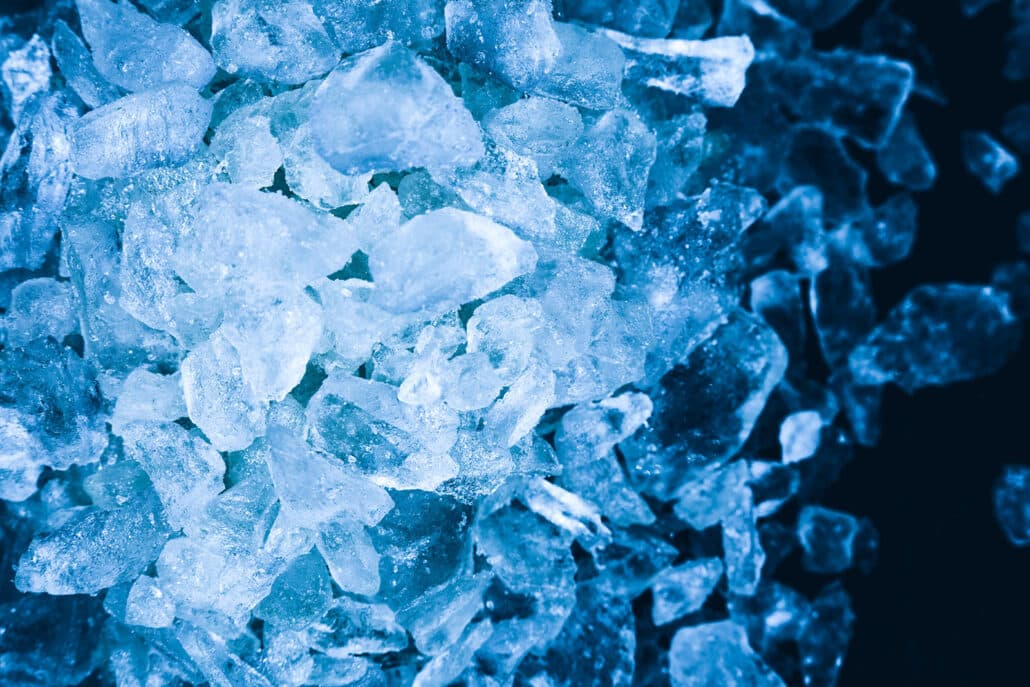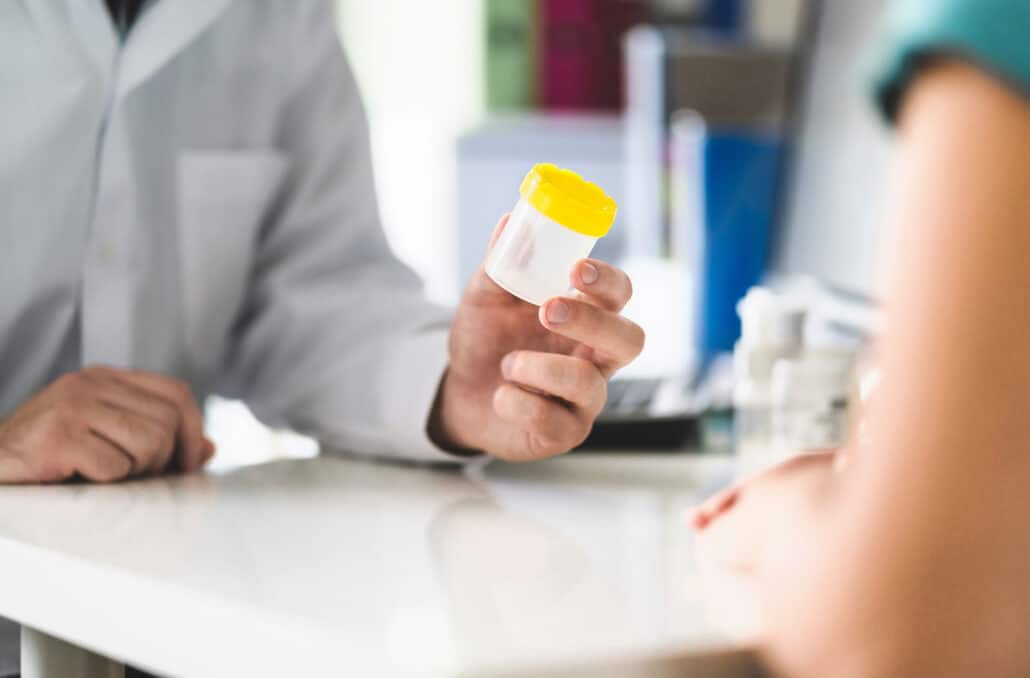Methamphetamine use can have a number of serious health effects that might take months or years to recover from. Furthermore, it may be harder to get a job, retain custody of your kids or otherwise lead a normal life if you cannot pass a drug test. Therefore, it’s important to understand why meth is a stimulant drug, how to get it out of your system and what you can do in an effort to get past your substance abuse.

Table of Contents
What Makes Meth Addiction Hard to Get Past?
Meth is one of the most addictive drugs that you can take because it significantly effects your central nervous system, increasing the dopamine levels in your brain. Dopamine is what is responsible for causing you to feel good after a workout, getting a promotion at work or some other pleasurable experience in your life. However, you will get so much of this chemical after taking meth that you can’t possibly recreate how you feel with normal everyday experiences.
Therefore, you feel resigned to using again, however, as with any other drug, your body builds up a tolerance for long term use. This means that you have to resort to snorting more each time to get the same high, and after too long, it can be difficult to function without at least some meth in your system.
How Long Does Meth Stay in Your Body?
You’ll generally notice the effects of meth use wearing off about seven to eight hours after you ingest it. Its half-life ranges from 10-12 hours. However, it will remain in your bloodstream for up to a week after you take it. The exact amount of time it takes to clear your system depends on a number of factors such as how much you ingested, the quality of the product you used and your overall health.
Meth is filtered out of the body through the liver, which means that it may take longer for it to exit if yours is damaged in any way. There is also circumstantial evidence to support the notion that meth takes longer to leave your system as you age. Finally, your eating, drinking and exercise habits may also play a role in how long meth takes to leave your system.
Meth Detection Times
Methamphetamine, commonly known as meth, has varying detection windows in different biological samples.
| Test Type | Detection Window | Notes |
|---|---|---|
| Urine Test | Up to 5 days | Meth can be detected in urine for up to 5 days after the last use. |
| Blood Test | 1 to 3 days | Meth is detectable in blood for approximately 1 to 3 days post-use. |
| Saliva Test | 1 to 2 days | Saliva tests can identify meth use within 1 to 2 days after consumption. |
| Hair Test | Up to 90 days | Hair tests can detect meth use for up to 90 days, reflecting long-term usage. |

Please note that detection windows can vary based on individual factors and testing methods. Always consult with a healthcare professional for personalized information.
Side Effects of Meth
Methamphetamine, commonly known as meth, is a potent central nervous system stimulant that can lead to a range of adverse effects, both short-term and long-term.
Short-Term Effects
- Cardiovascular Issues: Elevated heart rate, increased blood pressure, and irregular heartbeat.
- Neurological Symptoms: Increased wakefulness, decreased appetite, and heightened energy levels.
- Psychological Effects: Euphoria, increased confidence, and heightened sex drive.
Long-Term Effects
- Addiction: Methamphetamine is highly addictive, leading to compulsive drug-seeking behaviors.
- Severe Dental Problems: Commonly referred to as “meth mouth,” characterized by extensive tooth decay and gum disease.
- Skin Sores: Caused by repetitive scratching due to formication (the sensation of insects crawling under the skin).
- Weight Loss: Chronic use can lead to significant weight loss and malnutrition.
- Cognitive Decline: Impaired memory, decreased attention span, and reduced executive function.
Psychiatric Symptoms
- Anxiety and Paranoia: Persistent feelings of unease and irrational distrust of others.
- Hallucinations: Seeing or hearing things that are not present.
- Violent Behavior: Increased aggression and potential for violent outbursts.
Withdrawal Symptoms
- Fatigue: Overwhelming tiredness and lack of energy.
- Depression: Persistent feelings of sadness and hopelessness.
- Intense Cravings: Strong desire to use methamphetamine again.
It’s important to note that methamphetamine use can have severe health consequences, and seeking professional help is crucial for those struggling with addiction.
Tips for Getting Meth Out of Your System Faster
There are a number of steps that you can take to help get meth out of your system in less than the seven days it typically stays inside of you. For instance, drinking extra water helps the body get rid of waste in a more efficient manner. Exercising may allow you to sweat out the toxins associated with crystal meth, which could make them harder to detect on a drug test. Eating a balanced diet can also be useful as it can promote digestion and other processes needed to return your body to a healthier state.

The Benefits of Getting Meth Out of Your System
You will likely see a drastic improvement to both your physical and mental health after going through meth detox. This is because your brain will begin to unwind the changes it went through after you started using it. If you can refrain from using meth for several months, it may be possible for your brain to fully unwind all the changes it made during your period of dependency.
In other words, it would almost be like you never used it in the first place. Of course, you will still have to deal with the meth withdrawal symptoms, such as teeth rot, meth mouth, weight loss, or increased blood pressure. However, with the proper medical detox, it may be possible to overcome those issues as well, which can increase your confidence and make it easier to function in society.
The ability to remain mentally alert may make it easier to find and retain a job in your chosen field. You may also find that you are allowed to receive security clearances or otherwise make yourself a distinguished member of your company or profession in general.
While on amphetamines, or during meth withdrawal, it can be extremely difficult to maintain a relationship with your kids. This is because you may be unable to do anything other than search for your next fix instead of focusing on the needs of your kids. However, getting off of drugs means that you may be allowed to have supervised visitation that could escalate to unsupervised visits or formal custody.
You Don’t Need to Overcome Dependency by Yourself
It’s important to understand that you don’t need to overcome a dependency on meth by yourself — many treatment options are available. If you need to start detoxing today, there are inpatient programs that you can enroll in to start the process in a safe and controlled manner. During your stay, you will be monitored by medical professionals who can provide mental and physical health resources such as therapy or medication.
Therapy and medication may be able to help you work through the short and long-term ramification of detox such as heightened anxiety or hallucinations. Instead of hurting yourself or others, your addiction treatment will be in an environment where you’ll get the help that you need to get past a manic episode, withdrawal symptoms, and detoxification challenges.
Outpatient programs are also available if you just need help staying sober once you’ve cleared your system. These types of programs feature group and individual therapy sessions at churches, rec centers and other locations within the community. You may also be able to obtain assistance taking medications to manage tremors, nausea or other side effects of your quest to get sober.
Generally speaking, you can enroll in a rehab program or get addiction treatment without fear of losing your job. Typically, employers are required to hold your job open or offer you a similar position upon your return. However, there is no guarantee that you’ll be paid while you are away or that your employer will pay for your rehab. It’s possible that your health insurance policy will cover some or all of the costs associated with seeking help.
How to Minimize Your Risk of a Relapse
Enrolling in an outpatient program is one of the ways in which you may minimize your risk of a relapse. It’s not uncommon for those who are in recovery to attend meetings for the rest of their lives. This is because doing so helps them to remain accountable for their actions as well as remember that they are never truly in control of their addiction.

Therapy may also help you identify the cause or the triggers associated with your dependency and drug use. Understanding your triggers may help you avoid them or cope with the stress that they may bring. For instance, if you know that stress is a trigger, you should look into changing jobs, exercising more often or taking other proactive steps to reduce or manage your stress.
You may also be able to minimize your risk of relapse by choosing something more important than yourself to live for. If you have kids, you may decide that being in their lives is more important than a drug addiction that destroys your physical and mental health. Alternatively, you may decide that you want to be around long enough to see the birth of a grandchild or to travel the world.
Whatever you choose to live for, having a goal can give you purpose and something to focus on that isn’t using meth. Over time, you may start to realize that you don’t even think about using meth or have trouble avoiding the people or places that enabled your previous lifestyle.
If you are ready to stop using meth or other drugs for good, the accredited team at Long Island Interventions is here to help. We can also assist family members of those who are dependent on meth or other substances learn how to get their loved ones the help that they need. You can get in touch with our treatment center by phone or online right now to learn more about our services or how to start a treatment program today.
FAQ
How to get Meth out of your system fast?
Published on: 2024-01-30
Updated on: 2025-04-08

